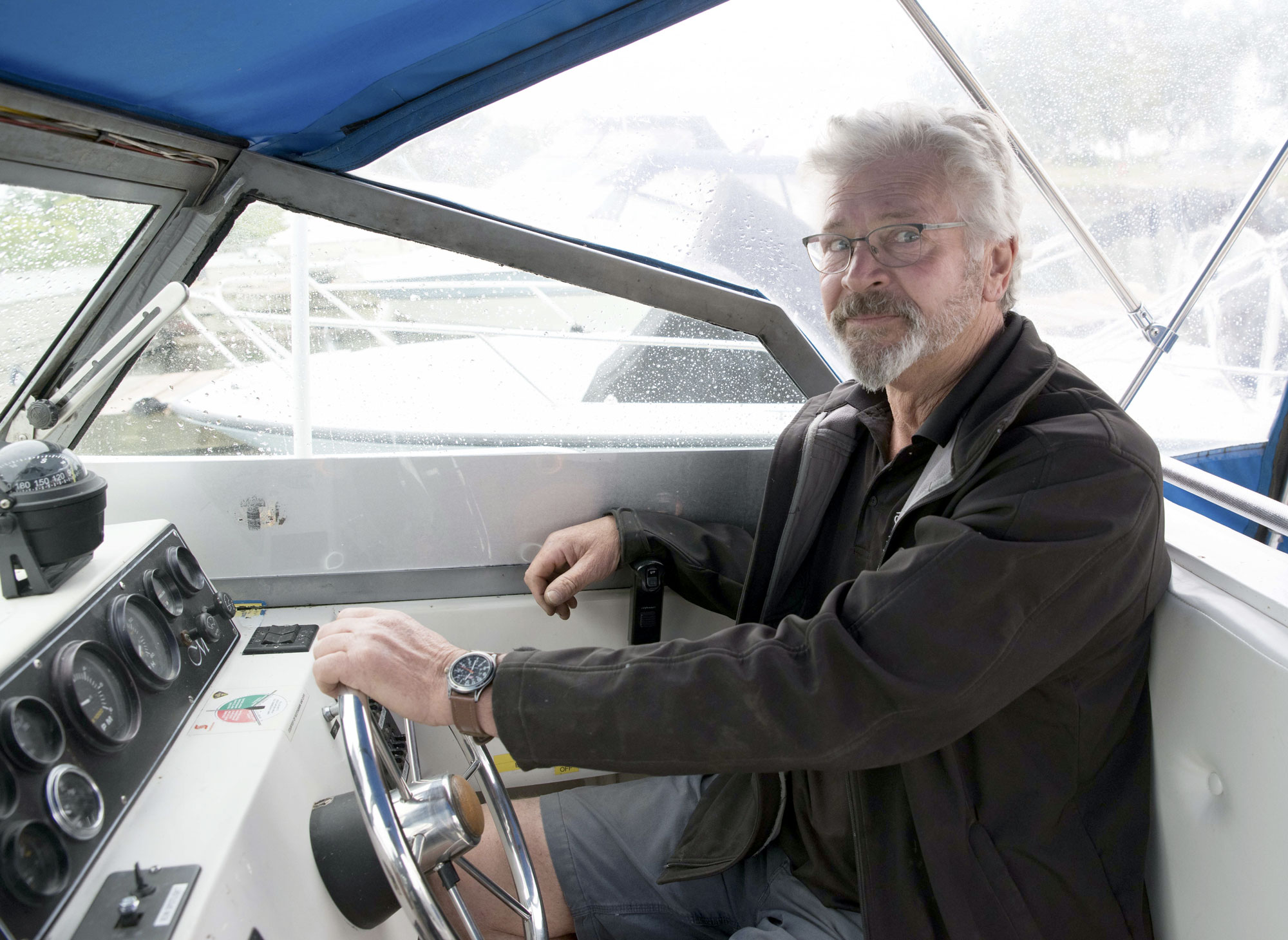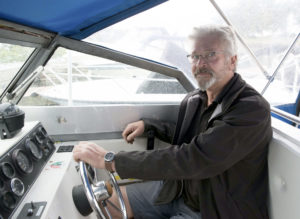County News
Wellington Rescue

Coast Guard Auxiliary members always ready to respond
It is the call that John McCrea finds most distressing. “When we get the call that there’s a person in the water, that changes everything,” he says. “When we are leaving, JRCC [Joint Rescue Coordination Centre] is desperately trying to contact the family, saying ‘Does this person usually wear a life jacket?’, because three times this boat has been out to look for a person in the water not wearing a life jacket, and three times we’ve come back empty-handed.” Mc- Crea is the unit leader of the Wellington Auxiliary Rescue Association (WARA), which operates the Wellington Rescue boat and provides search and rescue services in the area from Nicholson Island to Prince Edward Point and down to the US border—encompassing 125 kilometres of shoreline and 2,400 square kilometres of water.

Wellington Auxiliary Rescue Association unit leader John McCrea sits at the helm of the rescue boat in Wellington Harbour.
WARA has about 20 members, of which 15 are active and capable of responding to marine emergencies. The rescue boat is moored in Wellington Harbour and the group is mandated by the Canadian Coast Guard to be able to respond within 30 minutes of receiving a request from the Trenton-based JRCC. The JRCC handles marine emergency calls across Canada and has at its disposal primary assets such as rescue helicopters and a Hercules aircraft. There is a Coast Guard boat in Cobourg that is crewed 24 hours a day, and there are a number of volunteer Auxiliary units dotted around the lake that provide on-demand response. “We can’t do anything without [JRCC] telling us to do it,” says McCrea. “We can’t take this boat out without having a tasking number. It’s a very serious business.”
The members of WARA are all volunteers and have had extensive training to be able to respond to marine calls. In addition to being qualified in First Aid and having radio operator training, the volunteers take 20 hours of classroom lessons and 20 hours of on-water training. There are also ongoing training exercises. “They go out on West Lake or on the main lake and do the various training exercises set down by the training coordinator,” says Bob Riendeau. “It could be search patterns, it could be man overboard, helm training, charting and plotting. Everybody has to have training to go out on a mission.” A minimum complement of three is required to respond to a call: helmsman, navigator and a spotter, although it is preferable to have an additional spotter. “It’s a mad scramble to get this boat manned, prepared and going in half an hour,” says McCrea. “Some of our transit times, especially in bad weather, can be an hour, two hours. So if someone is having a heart attack or something, they’re in big trouble.”
The Coast Guard will cover the operating expenses of the boat while it is on a call, but the volunteers receive no compensation. In fact, they have to purchase their own uniforms. The boat itself, and all of the equipment, is owned by WARA. “It is a community vessel,” says McCrea. “This is Wellington’s rescue boat.” All of the equipment was obtained through fundraising or by donation. The latest item, an automated external defibrillator (AED), was purchased via a grant from the Stark Foundation. WARA receives funding from service clubs such as Lions and Rotary, and also from the Trillium Foundation, but its largest source is the Donate a Boat program. Donors are given a fairvalue tax receipt for a donated boat, which WARA then sells. One recent acquisition, a 26-foot cabin cruiser, sold within nine minutes of being offered for sale. Currently, much of the money raised is being put towards refurbishing a larger rescue boat, which WARA acquired three years ago. At this time, the boat has been totally stripped for repainting. There is no motor or electronics, so the project is a long way from completion.
McCrea has blunt words for any boater. “Wear a life jacket,” he says. “If you go in the water, even in the middle of summer, in Lake Ontario, you have maybe half an hour. If you have a life jacket on, at least we’ll be able to find you. If you don’t have it on, we’ll never find you.”
For marine emergencies, dial *16 on your cell phone. See wara.ca for more information.

Comments (0)